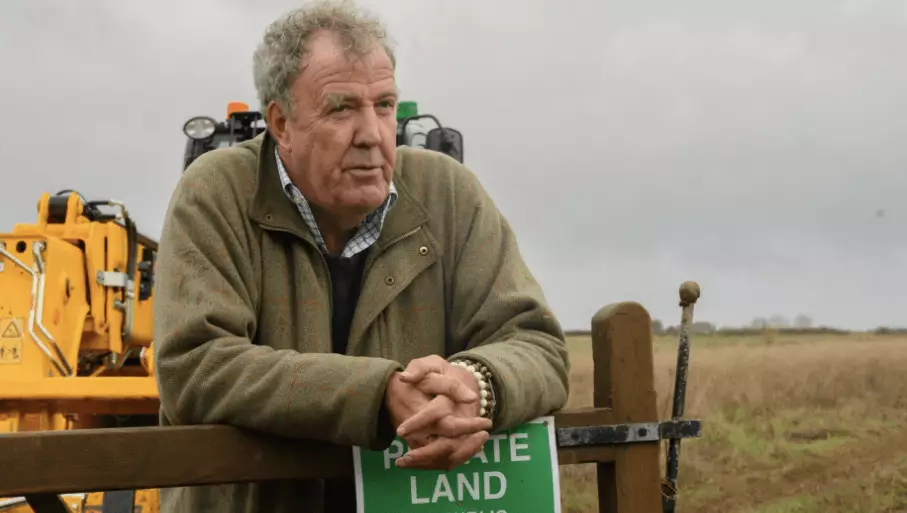Jeremy Clarkson, known for his controversial statements and colorful personality, has recently undergone a significant narrative shift regarding his farming venture. Once criticized for dismissing inheritance taxes with his purchase of Diddly Squat farm, Clarkson is now backtracking on his earlier claims. This intriguing transformation not only reveals his changing motivations but also reflects the broader complexities of rural advocacy in modern society.
In 2009, Clarkson’s admission in a newspaper column about buying land as a hedge against inheritance tax ignited a wave of criticism. His assertion that “land is a better investment than any bank can offer” pinpointed his recognition of agricultural land as an asset that could shield wealth from government claims after death. At the time, his approach resonated with a segment of the population favorable to tax avoidance tactics, prompting accusations of elitism and an apparent disconnect from everyday farming struggles. However, this narrative has since morphed.
In a recent interview with The Times of London, Clarkson revealed a surprising twist: his initial rationale was largely fabricated for PR purposes. Clarkson admitted, “I never did admit why I really bought it… I wanted to have a shoot — I was very naive.” This candidness demonstrates a moment of introspection and consideration rather than a ruthless financial strategy. It highlights a more personal and perhaps nostalgic desire toward land ownership, suggesting that there was once an allure beyond mere financial gain. This revelation prompts questions about authenticity in public life and the motivations that drive prominent figures in their quests for legitimacy.
As a self-proclaimed champion for rural communities, Clarkson’s transition from a focus on personal gain to advocating for farmers indicates a growing awareness of the complexities within the agricultural sector. He has vocally expressed his concerns about government policies that fail to appreciate the real burdens facing farmers, revealing a newfound commitment to promoting their untermed challenges. Issues like climate change, market viability, and governmental red tape take center stage in Clarkson’s narrative, showcasing a sense of responsibility he had not previously embraced.
Despite his advocacy, Clarkson has dismissed the notion of pursuing a political career, acknowledging that “I’d be a terrible political leader, hopeless.” This self-awareness is crucial; it reflects a common concern where charismatic personalities mistakenly believe that their public persona translates into political acumen. Such a statement signals a potentially wise approach to his influence: recognizing his strengths while understanding that advocacy does not necessitate political ambition.
Jeremy Clarkson’s journey from a controversial figure embroiled in tax dodging allegations to one advocating for the farming community represents a fascinating case study of public perception and personal growth. His evolving story captures the challenges and responsibilities of influence, reminding us that motivations can change, and public figures can adapt their narratives in pursuit of more profound values. As Clarkson continues to navigate his role in agricultural discourse, observers may wonder whether his journey is an outlier or indicative of a broader movement toward authenticity in celebrity advocacy.

